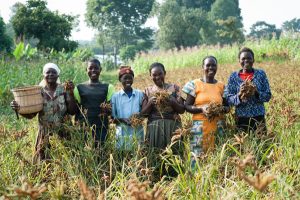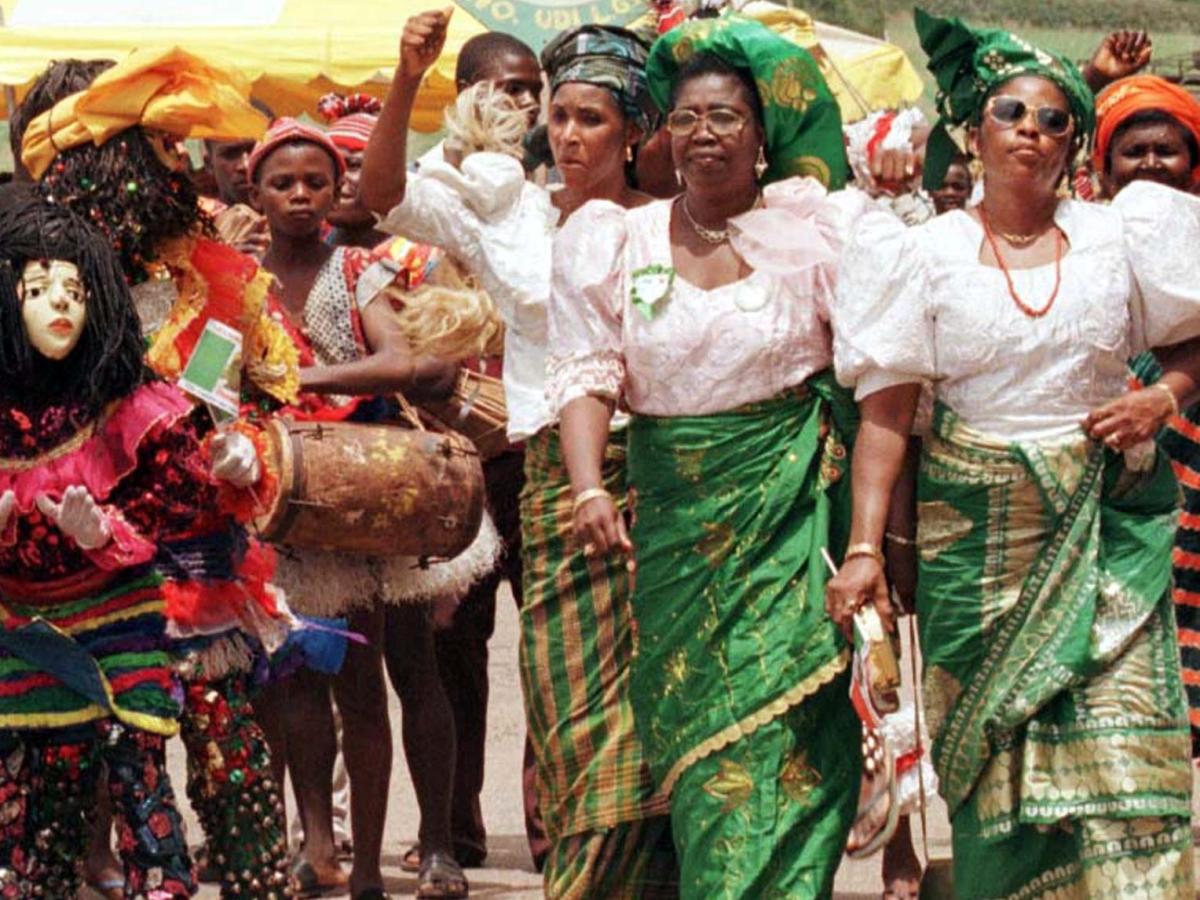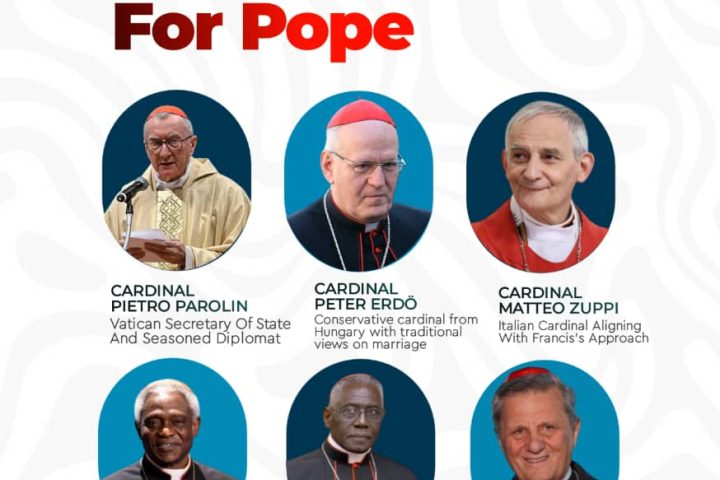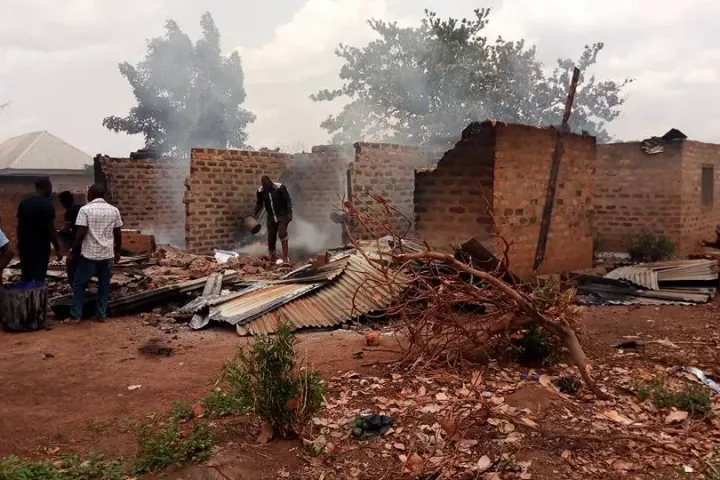By Mazi Ben Ezenta
The discussion about Women’s Empowerment is as old as humanity and civilization. The more we discuss it the more it appears unattainable.
Before delving into the topic, a basic understanding of the definition of Women’s Empowerment is important.
Women’s Empowerment has been defined variously based on the writer’s or advocate’s understanding and predispositions toward the role of women in society. Below are a couple of such definitions.
“Process by which women gain power and control over their own lives and acquire the ability to make strategic choices…. Women’s empowerment has five components: women’s sense of self-worth; their right to have and [to] determine choices; their right to have access to opportunities and resources; their right to have power to control their own lives, both within and outside the home; and their ability to influence the direction of social change to create a more just social and economic order, nationally and internationally. ”1
“Empowerment means to have agency over one’s life and equal opportunity to participate in society. Women’s empowerment, or female empowerment, is the process by which women gain influence and equal opportunity to pursue personal, social and economic endeavours, engaging in all parts of society on the same basis as men.”2
“The empowerment and autonomy of women and the improvement of their political, social, economic and health status is a highly important end in itself”3 .
Though some progress has been made over the years in empowering women, however, a lot still needs to be done to attain the desired goal. Before going much further, we need to define Women’s Empowerment.

I do not intend to bore the reader with numerous definitions of Women’s Empowerment or make the write-up an academic exercise. Rather the article will discuss Women’s Empowerment from a practical and cultural point of view in Nigeria in general and Igboland in particular with references to Arochukwu -my hometown. One common theme that runs through all the definitions of Women’s Empowerment is Equal Opportunity. To this end, I’ll define Women’s Empowerment as the creation of societal and cultural environment that provides equal opportunity for women and men to enable them to achieve their full potential. This will be the prism through which this article will discuss Women’s Empowerment.
Some may argue that our women already have equal opportunities to attain whatever height they wish in life. However, when viewed critically, you’ll find out that the statement is not only grossly incorrect but also misleading and an attempt to play the ostrich.
Our society and cultural practices dictate how children are raised and trained in the family and society at large. The girl child is trained from childhood to be a mother and wife while the male child is trained to have control and make decisions. Let’s take a typical example. When visitors come to the house, the girl child is expected to join her mother in the kitchen or inner room while the male child sits with his father and elders listening to all the discussions even those he does not understand. This is an informal unintended leadership training of the male child in our families and cultural settings. The male child benefits tremendously from the opportunity while the female child is unconsciously denied similar exposure. Growing up, my father regularly takes me to Arochukwu town meetings in Aba, football matches and other social events while my two elder sisters were left at home. I usually come home and relay my experiences to them. I normally notice jealousy in the body language because it appears and seemingly so, that I’m treated like a king while they are given second-class attention. They conceal their disappointment while I wallow in the euphoria, oblivious of the impact the denial was having on them.
This is a common practice in many families. My father may not have been doing it deliberately but society expects me to take over from him when he’s gone. Inadvertently, I was exposed to a lot of opportunities my sisters were not privileged to have. Those experiences contributed in no small measure to who I’m today. This cultural informal training may look trivial, but that is when a male child starts to cultivate the attitude of superiority and a sense of entitlement over his female sibling. Nobody can blame the male child for it because that is how our society has been structured.
What we may be overlooking, is that the practice has a considerable impact of neglect on the female child who grows up to understand she must be subservient to the men and should not expect to be treated equally to men –that is wrong and that is the root of the disproportionate opportunities in our culture and societies today. The argument may be advanced or canvassed that men and women are wired differently and tend to gravitate towards their natural tendencies. While I’m not a psychologist to dispute or support that viewpoint, I know from experience that when you constantly expose a child or adult to specific information, the person internalizes that information, processes it and responds to it. That is the same psychological strategy that Donald Trump used to brainwash his supporters. He constantly told them things that he knows to be lies. By constantly repeating and reinforcing the lies, his supporters internalize them and unconsciously begin to believe them, own them and eventually start acting them out. If this reference holds true, it can then be postulated that if the girl child is exposed to the same level of training and information available to the male child, the girl child consciously or unconsciously will start acting and operating at the same level as her male sibling. I want to disclaim that this is a subjective deduction rather than a scientific conclusion from any research work.
Given this trend of thought, the girl child grows up with this skewed understanding of the role of male and female and invariably accepts the limitations society and culture have placed on her way. The same mindset is carried by the girl child to womanhood as she accepts and lives with that ceiling. Is it notironic that Justice Mary Odili – next in line to the Chief Justice of Nigeria, with all her level of education, experience, qualification and exposure, may not be eligible to adjudicate in family matters brought to Umunna meeting in her village or even her husband’s village because she’s a woman. Instead, one wretched (please excuse my language), illiterate, hungry-looking drunkard with no knowledge or experience of dispute and conflict resolutions will be preferred over her because he’s a man. Imagine the dept of intellectual prowess we’re losing because of gender. In the same vein, our sister Ngozi Okonjo-Iweala – the Director General of the World Trade Centre who chairs the meetings of Presidents and Heads of Governments all over the world may not be permitted to superintend or conduct a family meeting in her village – Umuahia even if she’s the eldest – because she is a woman. The quantum of talents we allow to waste in the name of male chauvinism is unbelievable and mind-boggling. By nature women and men are wired differently. Biologically also there are differences. These differences should and must be recognized in order not to overgeneralize and trivialize the issue of Women’s Empowerment. Naturally speaking, a man cannot give birth to another individual while a woman cannot produce sperm to impregnate herself except sperm is introduced (I am deliberately ignoring some unethical scientific innovations raving the world).
Both have to contribute equally to bring another human being into the world. This equal contribution makes the process possible. It is this cooperation and equal contribution that Women’s Empowerment is all about. Each party has diversified strengths and weaknesses. But the collective uninhibited effort of each party complements the other and produces the best result – a child. Diminishing the strength or effort of either party means denying the outcome and benefit of synergy. We may deceive ourselves in Igboland to say that women have equal opportunities as men. I beg to defer because there are a lot of glaring examples pointing to the contrary. Starting from the top of our traditional institutions, aside from Anioma, to the best of my knowledge, there is hardly any other Igbo town or village that has a woman or women at the highest echelon of their traditional leadership.
Arochukwu may pride itself on being an exception having produced a woman – Nnenne Mgbokwo Udo Omini (Eze Aro, 1799 – 1825), and use that to claim that Aro gives women equal opportunity as men.
The question is, was Nnenne Mgbokwo Udo Omini Eze Aroship an accident of history or was it deliberate. If it was deliberate, why has there not been another woman on the throne after her.
The much I know about Eze Aro enthronement is that it is based on the eldest male from the royal family that is next in line. The question then is why has another woman from the royal family not been enthroned since 1825. So that claim of exception may not hold water after all. The same question goes to other towns and villages in Igboland. We copy the west in a lot of things. Why are we not copying their positive traditional practices. Queen Elizabeth is married and yet sits on her father’s throne.
England recently amended their laws to accord both male and female children of the royal family equal opportunity to the throne. That is Women’s Empowerment. But can our daughter from a royal family sit on her father’s throne. Why would the Obi of Onitsha, Oba of Benin, Ooni of Ife, Sultan of Sokoto be only men. What happened to women in those communities. How can anyone profess to support Women’s Empowerment while placing boundaries, ceilings and limitations on their path. Some may accuse me of crossing the line and creating incitement. Hey!!! public notice, this is the 21st century, everything should be on the table and there should be no boundaries in discussing our social and cultural values if we intend to create a just and equitable society.
Here is another example from my kindred. So many men in my kindred were brought up by my mum. Most lived with her till they got married. She played an active role in forming and forging most of them to adulthood. At 94 and the oldest in our kindred before her death, she was not entitled to head the kindred, how much making decisions that affect the kindred. Instead, the men she brought up over the years, were the ones running around and making decisions, most of which are questionable, to say the least. They will even come to consult with her in private and get some history lessons to enable them to resolve issues. Yet in public, she can only be seen but not heard – because she’s a woman. Where is equal opportunity in this situation. My mum’s case is not an isolated happenstance. It is the culture in Igboland and other parts of Nigeria. It is time for Change.
Women are known to be prayer warriors and the prayer pillar in most families including mine. Men including myself believe in the intercessory power of women. This means that women by extension are arguably considered to be closer to God. Why are the same women we rely on as our prayer warriors not permitted to pray to our ancestors – can somebody help me. Ndigbo prays to our ancestors by pouring libation, using breaking kola nut and the like. A good question to ask is, will it be taboo for a woman to pray to our ancestors. Will our ancestors not answer and will they be mad that a woman is praying or pouring libation to them. Come to think about it, our ancestors are our dead fathers, grandfathers, great grandfathers and so on. Not forgetting our mothers, grandmothers and great grandmothers. Does anybody know what they think or how they feel or are men just supplanting their opinions and views for the wishes or thinking of our ancestors, similar to what some pastors do when they say God told them when they are actually speaking from their carnal mind (I may have touched some nerves with the pastor reference). Apologies for that digression. My father died in 1998. I did not meet my grandfather and never knew my great-grandfather. My father has never spoken to me in my dreams or in any other form since his death. How do I know what he and other dead members of my family think or are thinking other than what they were practicing while they were alive. How do I know if my mother, sister or wife pours libation to them, they will not accept it. Who has even spoken or communicated with our ancestors to understand what makes them mad or happy. One thing looks certain that men have ordered the society, culture and tradition to suit them and use the name of our ancestors to justify that domination. It is time we open up our society, culture and tradition to provide equal opportunity to all. Who says a woman may not like to be a masquerade. Why can’t a woman partake in all the cultural societies in Igboland like Ijele, achikwu, izaga, ojionu, agaba to mention but a few. Why can’t women be kings or queens. There are hundreds of thousands of ‘Whys’ begging for answers in Igbo culture. Recently during one of the new yam celebrations of Igbos in Canada, when the Arondizuogu masquerade came out to perform, one of the women from Arondizuogu got in the spirit. She clutched herself tightly, raised herself to stand on her toe, moved majestically with an infectious swagger and started gyrating to the same rhythm as the nmanwu. She was so engulfed in the moment that she did not notice that her hair tie and top wrapper has fallen off. She was out of this world as she danced elegantly to the beautiful music circling the nmanwu in the process. Take a moment to think about this. If her culture like most other Igbo cultures forbids women from participating in nmanwu that woman like many others may be dying in silence for opportunities to belong and be part of her society. That is what we are denying women in many Igbo towns and villages with or without knowing it.
I know women may not be thinking that far. But if we have to build an egalitarian society, we must interrogate everything. We cannot leave it to the normal excuse of “our age-long practice from our forefathers”. May I remind some uncomfortable readers that twins were once taboo and killed in Igboland.
Today the reverse is the case. Also, there are Osu and Ume in most towns and villages in Igboland. Thanks to good reasoning and acceptance, some of those cultural practices have gradually been abolished. If you notice, none of those towns and villages that abolished those archaic practices have seen their fortunes dwindle rather they have seen progress, happiness, corporation and collaboration among other things, which are sine qua non for community development. No culture is static. Every culture is dynamic and evolves as people are exposed and make contact with other cultures. Who says a woman would not like to present a kola nut to our visitors if she is the eldest person in the group just like men. Instead, even if the only male in the group is a toddler he will be directed to present the kola nut to the visitors even though he may not know what he is doing. What about the back handshake common in Igboland. Why are women even the titled ones not qualified to give “ i na ato” (back handshake) greetings to fellow women how much more to men. I was agonized listening to Chiamanda Adichie describe how she felt the day a titled man gave her the backhand salute during the reception ceremony her hometown organized in her honour in recognition of her works and achievements. She narrated that she felt highly elated at such recognition but felt bad that she was accorded such recognition only because of her achievement. Most time we fail to understand the impact of what we may consider minor or trivial has on others. It should not take achievement by a woman to grant her a semblance of opportunity. It should be universal to all women and girls irrespective of their societal standing. Recently a group of Igbo women were initiated or were attempted to be initiated into Ozo society in the UK. There was a huge outcry amongst men that our culture has been desecrated. I was not happy with the development myself but for a different reason. I’m vehemently opposed to staging a traditional initiation or title ceremony outside the ancestorial home of the title. It was wrong for the initiation to be done in a foreign land but I would not have bothered if it were done in their village. One question to ask is if the title was bestowed on men in the UK would it have received the same condemnation as that of the women or is it because the recipients were women. Make no mistake about it. You know women are more smarter and intelligent than men. They were merely tasting the water to gauge society’s reaction.
To be continued…



















Follow Us